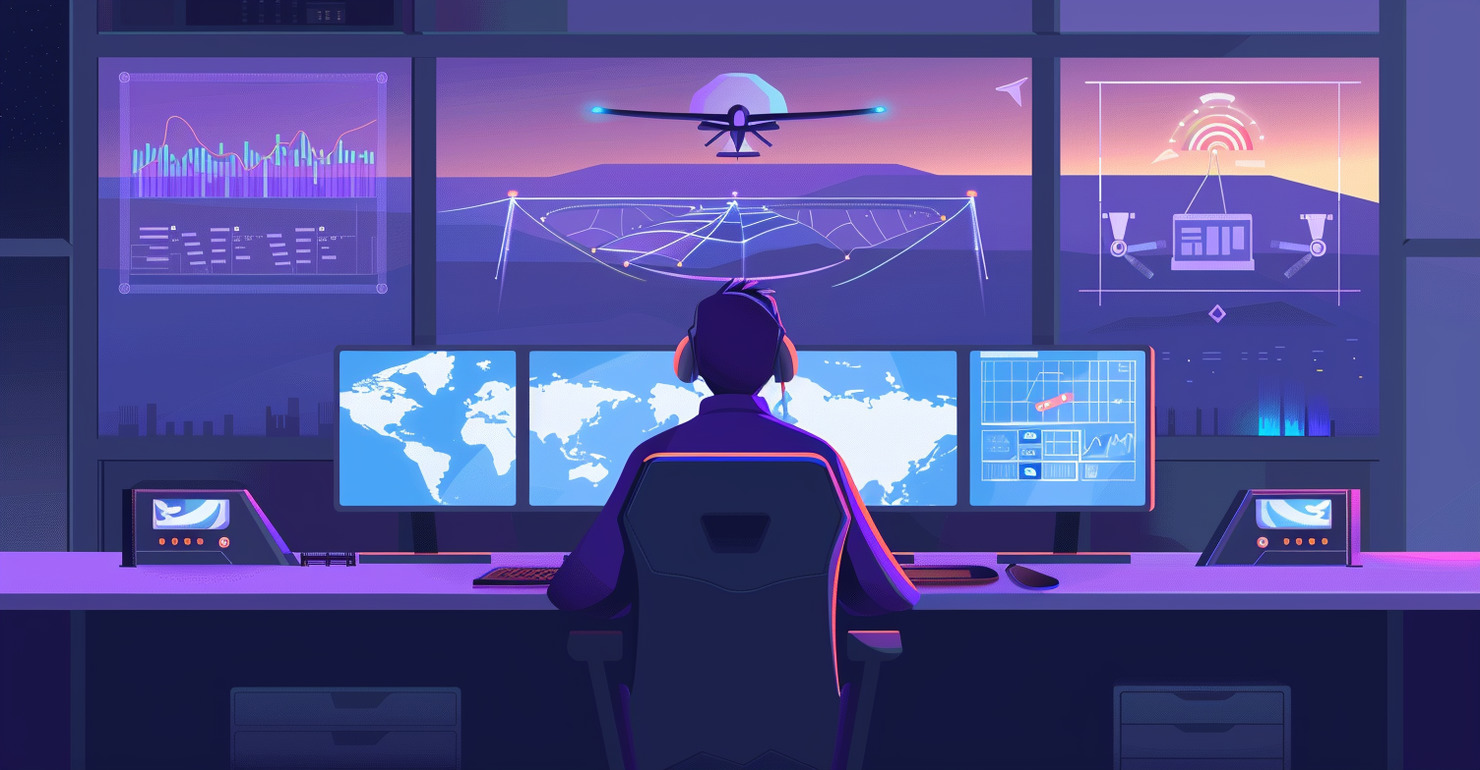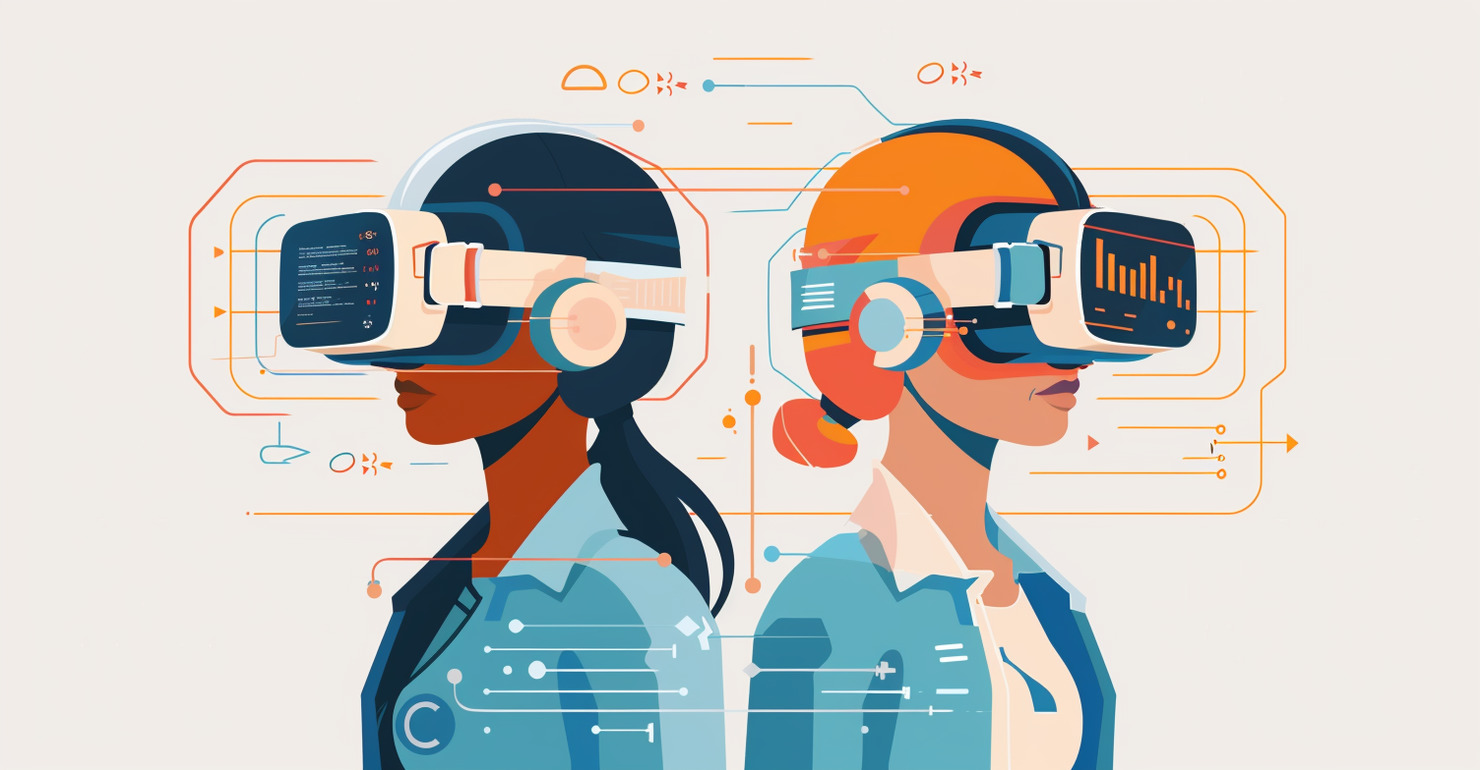
AI Pilots: The Future of Unmanned Flights
The advancements in artificial intelligence (AI) have paved the way for revolutionary developments in various industries, including aviation. AI-powered pilots are transforming the future of unmanned flights, offering a plethora of benefits and applications.
With AI algorithms and machine learning capabilities, these pilots can process real-time data, anticipate obstacles, and adjust trajectories instinctively. They have undergone extensive training on thousands of hours of flight data to enhance their decision-making skills.
From military applications such as combat training missions, surveillance, and cargo transportation to civilian uses like logistics and aerial inspections, AI pilots have proven their potential in enhancing efficiency, safety, and cost-effectiveness.
As technology continues to advance, the future of AI-powered unmanned flights holds immense promise in terms of national security, improved air combat operations, and autonomous aerial transportation.
The Advancements in AI-Powered Pilots
AI-powered pilots have witnessed remarkable advancements in recent years, shaping the future of unmanned flights. With the integration of artificial intelligence and advanced machine learning algorithms, these pilots have become capable of autonomous decision-making and navigation.
Companies like General Atomics Aeronautical Systems and Shield AI have successfully tested and deployed AI pilots in various aircraft, such as the Avenger Unmanned Aircraft and the V-BAT Group 3 UAS. These AI pilots possess the ability to process real-time data, anticipate obstacles, and adjust trajectories accordingly.
Through extensive training on thousands of hours of flight data, AI pilots have developed superior decision-making skills, rivaling those of human pilots. Deep learning techniques enable these pilots to learn from past experiences and adapt to new scenarios, making them more reliable and efficient.
The use of AI pilots extends to both military and civilian applications. In the military sector, AI pilots can perform combat training missions, surveillance operations, and cargo transportation, enhancing national security and air combat capabilities. In the civilian sector, AI pilots are revolutionizing logistics, inspections, and transportation by offering safer and cost-effective alternatives.
Advancements in AI-powered pilots have also paved the way for increased autonomy in aerial warfare. The integration of AI into fighter systems, as seen in the Skyborg program, enables unmanned aircraft to execute complex maneuvers and engage in air-to-air and air-to-surface skills.
With ongoing research and development, AI-powered pilots are expected to continue evolving, further enhancing the capabilities of unmanned flights. The future holds tremendous potential for AI pilots to play a vital role in safeguarding national security, improving mission success rates, and transforming the aviation industry as a whole.
Applications of AI Pilots

The advancements in AI pilots have led to a wide range of applications in both military and civilian sectors. These AI-powered pilots are proving to be invaluable assets in various scenarios:
- Military Operations: AI pilots are utilized in combat training missions, surveillance operations, and cargo transportation in military settings. They enhance national security by providing efficient and effective alternatives in air combat operations, intelligence gathering, and logistics.
- Civilian Applications: AI pilots are revolutionizing the civilian sector with applications in logistics, inspections, and transportation. They offer safer and cost-effective alternatives for tasks such as oil and gas inspection, package delivery, and search and rescue operations.
- Aerial Inspections: AI pilots can perform aerial inspections of infrastructure, such as power lines, pipelines, and buildings. They can detect anomalies, monitor structural integrity, and identify maintenance needs.
- Surveillance: AI pilots equipped with advanced sensors and image recognition capabilities can conduct surveillance operations, monitoring vast areas for security purposes or wildlife conservation efforts.
- Autonomous Cargo Transportation: AI pilots enable autonomous cargo transportation, providing efficient and reliable delivery services. This technology has the potential to transform supply chain and logistics operations.
- Air Combat Operations: The integration of AI into fighter systems allows AI pilots to execute complex maneuvers and engage in air-to-air and air-to-surface combat operations. They enhance mission success rates and provide an advantage in aerial warfare.
These applications demonstrate how AI pilots are reshaping various industries by offering enhanced capabilities, increased efficiency, and improved safety. As technology continues to advance, the potential for AI-powered pilots to further revolutionize unmanned flights is immense.
The Benefits of AI-Powered Pilots
The integration of AI-powered pilots in unmanned flights offers a multitude of benefits that reshape the future of aviation:
- Enhanced Safety: AI pilots are capable of processing real-time data from multiple sensors, allowing them to detect and avoid obstacles, anticipate risks, and adjust trajectories accordingly. This significantly enhances the safety of unmanned flights by minimizing the chances of collisions or accidents.
- Increased Efficiency: AI pilots possess advanced decision-making capabilities and can analyze vast amounts of data in real time. They can optimize flight routes, fuel consumption, and other parameters, leading to improved efficiency and cost savings.
- 24/7 Operations: AI pilots do not require rest or breaks, allowing for continuous operations. This capability is particularly valuable in surveillance missions, search and rescue operations, and logistics tasks where uninterrupted performance is crucial.
- Reduced Risk: By replacing human pilots in potentially dangerous scenarios, such as combat missions or hazardous inspections, AI-powered pilots help mitigate risks to human lives. They can operate in extreme weather conditions, high altitudes, or hazardous environments, minimizing the exposure of human personnel to danger.
- Improved Mission Success Rates: AI pilots undergo extensive training on vast amounts of flight data, enabling them to adapt to various scenarios and make informed decisions. Their superior decision-making skills contribute to improved mission success rates and precision in operations.
- Cost-Effectiveness: With AI pilots, organizations can reduce operational costs associated with pilot training, salaries, and benefits. Additionally, AI pilots offer efficient fuel consumption, optimized routes, and decreased maintenance needs, resulting in long-term cost savings.
The benefits of AI-powered pilots extend to both military and civilian applications, where they enhance capabilities, improve safety, and drive innovation in unmanned aviation. As the technology continues to advance, these benefits are likely to expand, opening up new opportunities across various sectors.
The Future of AI-Powered Unmanned Flights
The future of AI-powered unmanned flights holds tremendous potential for advancements and transformation in the aviation industry:
- Enhanced Autonomy: As AI algorithms continue to evolve, AI-powered pilots will become increasingly autonomous. They will possess advanced decision-making capabilities, adaptability to new scenarios, and the ability to learn from real-time data, creating a new era of unmanned flights.
- Swarm Operations: AI-powered unmanned flights have the potential to operate in coordinated swarms, where multiple aircraft work together to achieve complex missions. This collective intelligence can provide enhanced situational awareness, improved mission success rates, and scalability.
- Advanced Aerial Combat: The integration of AI into fighter systems is paving the way for advanced aerial combat capabilities. AI-powered unmanned aircraft can execute complex maneuvers, engage in air-to-air and air-to-surface combat operations, and operate in high-threat environments more effectively.
- Urban Air Mobility: AI-powered unmanned flights are expected to play a crucial role in the development of urban air mobility. They can provide efficient and safe transportation solutions for passengers and cargo in urban areas, alleviating traffic congestion and revolutionizing transportation networks.
- Integration with Other Technologies: AI-powered unmanned flights are likely to integrate with other emerging technologies such as 5G, Internet of Things (IoT), and advanced sensors. This integration will further enhance their capabilities, enabling real-time data sharing, improved communication, and more precise navigation.
- Continued Research and Development: Ongoing research and development efforts in AI and unmanned flights will drive innovation and advancements in this field. Collaborations between aerospace companies, defense organizations, and technology firms will further propel the progress of AI-powered unmanned flights.
- Regulatory Considerations: As AI-powered unmanned flights become more prevalent, there will be a need to establish regulations and guidelines governing their operations. Authorities will need to address safety, privacy, and security concerns to ensure the responsible and ethical use of AI in aviation.
In summary, the future of AI-powered unmanned flights is filled with possibilities and transformative potential. With advancements in AI algorithms, continued research, and integration with other technologies, AI pilots will revolutionize the way we perceive and experience air travel, creating safer, more efficient, and sustainable aviation systems.
Conclusion
The future of AI-powered unmanned flights is filled with promise and potential. With advancements in artificial intelligence, machine learning, and autonomous technologies, AI pilots are set to revolutionize the aviation industry.
These AI-powered pilots offer enhanced safety, increased efficiency, and continuous operational capabilities. They have applications in military operations, civilian tasks like logistics and inspections, and even urban air mobility.
The benefits of AI pilots include improved decision-making, reduced risks to human lives, and cost-effectiveness in operations. They have the ability to process real-time data, adapt to new scenarios, and learn from past experiences to make informed decisions.
In the future, AI-powered unmanned flights will continue to evolve and integrate with other emerging technologies such as 5G, IoT, and advanced sensors. This integration will further enhance their capabilities and open up new possibilities for applications and advancements.
However, as the use of AI pilots increases, there will be a need for regulatory frameworks to address safety, privacy, and security concerns. Establishing responsible guidelines and ethical practices will be crucial for the widespread adoption and acceptance of AI-powered unmanned flights.
In summary, AI pilots represent the future of unmanned flights, transforming the way we think about aviation. With their potential to enhance efficiency, safety, and innovation, AI-powered unmanned flights are poised to shape the future of aviation in ways we have yet to envision.



